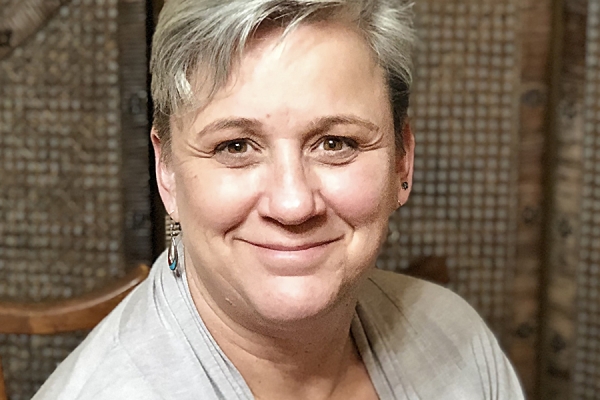 Professor Andrea Sullivan-Clarke will present an introduction to the Indigenous philosophy of Turtle Island on Feb. 22.
Professor Andrea Sullivan-Clarke will present an introduction to the Indigenous philosophy of Turtle Island on Feb. 22.
“Ways of Being in the World: An Introduction to the Indigenous Philosophy of Turtle Island" is the subject of a Humanities Research Group event next week featuring HRG fellow Andrea Sullivan-Clarke, assistant professor of philosophy.
The presentation is on Tuesday, Feb. 22, at noon, on Microsoft Teams. Register here to attend.
Dr. Sullivan-Clarke is a member of the Wind clan of the Muscogee (Creek) Nation of Oklahoma and a President’s Indigenous Peoples Scholar. She is interested in topics relevant to Indian Country, such as allyship, sovereignty, and mixed-race contributions to knowledge production.
Sullivan-Clarke also chairs the American Philosophical Association’s Committee on Native American and Indigenous Philosophies and is writing a book with the goal of assisting faculty who are non-Indigenous and want to teach Indigenous subjects in their courses.
For Tuesday’s presentation, she will walk the audience through a typical class on Indigenous philosophy.
“It’s not one where I’m proving something to you and you’re going to ask me questions and I’ll defend my argument. It’s not that sort of talk,” explains Sullivan-Clarke. “It really is more about how non-Indigenous faculty who want to teach Indigenous philosophy can include it in their courses.”
Sullivan-Clarke invites students and faculty to join her to learn about some of the current themes in Indigenous philosophy and examine how those themes apply to being in the world. The topic will be Indigenous Conceptions of the Good Life, a topic covered in most introductory courses in philosophy.
“I hope that by coming to appreciate the philosophical teachings of the Indigenous people on Turtle Island, current attitudes may change,” says Sullivan-Clarke. “I envision my research sitting squarely at the intersection of Indigenous and Settler relations.”
Currently, Sullivan-Clarke is teaching a course in cultural competency to students in the Faculty of Nursing, and a graduate philosophy seminar on the topic of social epistemology and why society didn’t listen to the survivors of the residential schools.
“Because there have been so many cases of Indigenous people suffering or dying in health care situations, I’ve been working with the nursing students to develop their cultural competency, cultural safety and humility,” Sullivan-Clarke says. “It’s been wonderful engaging the students. I think it’s so nice to reach out across the campus and make that sort of connection. “
This event is presented by the Humanities Research Group on Microsoft Teams.
